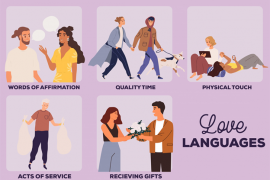By Kembet Bolton
I am sorry.
If you’re a woman, there’s a good chance you use this phrase a lot—in fact, you may use it way too much. That’s not your fault. Women are taught and socialized to say sorry—to feel sorry—whether they’re in the wrong or not. It’s a form of deference, and it’s a way of making ourselves smaller or just appeasing. And even though it becomes such an ingrained part of our vocabularies that we often apologize when we are not wrong. It’s not good for us—and it’s not good for our relationships, romantic and otherwise.
Because all too frequently, those apologies aren’t real apologies at all. They’re said out of a sense of duty or awkwardness, to stop someone from getting angry or to hide the fact that we’re angry ourselves. So, it’s time to take a little inventory of our “I’m sorry” habit—and look at when an apology isn’t an apology at all.
When Do I Need to Apologize?
Simply put, you need to apologize when you have done something wrong and that’s it.
Not when someone’s mad at you for no reason, not when you want to take the blame just to diffuse a confrontation. When you’ve messed up and if you’ve hurt someone, that’s when you should apologize. It’s a form of accountability, a way of saying that you’re taking responsibility, acknowledging their pain, and promising that you will do better in the future.
It might sound very basic, but if you find yourself constantly deferring and apologizing, it’s time to touch base and remember when an apology is actually necessary.
Of course, you can also say you’re sorry for situations that have nothing to do with you. If your spouse gets fired, had a business deal gone sour, or had a particularly rough day, it’s totally understandable to say, “I’m so sorry that happened.” But that’s different than saying you’re sorry for what you did when you don’t think you need to.
When an Apology Isn’t Actually an Apology
Although apologizing can be a great thing—a responsible, mature thing—all too often our “apologies” aren’t apologies at all. Pay attention to why you’re saying sorry. You might find that you’re apologizing because your partner is angry with you and, even though it’s not your fault, you don’t want to start a fight. You may find that you apologize because you just don’t know what else to say. You might find yourself apologizing without even realizing it—because it comes out of your mouth before you realize what’s happening.
You may even say it when you’re upset or you’ve been wronged because it’s just easier.
In all of these cases, the non-apology is doing you a huge disservice. Not only is it not respecting your real feelings and needs, but it’s also a cork that stops the flow of actual communication. Rather than having the difficult conversation, it’s a way of forcing things under the rug and moving along as swiftly as possible. Now, you may have a good reason for this. If you’ve been in an abusive or controlling relationship, you might have developed it as a form of self-protection. But in a healthy relationship, saying “I’m sorry” when it’s not warranted only stunts your relationship growth and stops you from getting to the bottom of what’s really going on.
It might mean standing up for yourself—pointing out that you haven’t done anything wrong and so you’re not going to apologize, which can be difficult at first but is so crucial for your overall sense of self-worth. You need to trust yourself and love yourself enough to stand your ground.
Is your partner really apologizing?
Though women are more socialized than men to apologize, it’s still important to keep an eye out for non-apologies. If you get the feeling that your partner is saying they’re sorry without really meaning it—like, “I’m sorry you’re upset…”— this is very different than actually taking responsibility for their actions. If you sense that your partner is also using faux apologies as a way to gloss over things, it’s another sign that your communication is faltering. So, try to push for having a more open discussion, knowing this will also mean that you need to be open to listening to your partner’s point of view, even if you don’t always like what they have to say.
It’s okay to not be sorry
We get so used to saying “I’m sorry” that we often stop thinking about why we’re saying it in the first place. If you take the time to be mindful about when you apologize, you might just find that many of your apologies are actually something totally different. So take a step back and notice when you’re using apologies instead of having the tough conversations and standing up for yourself. The more honest you are, the stronger you—and your relationship—will become.





Comments are closed.